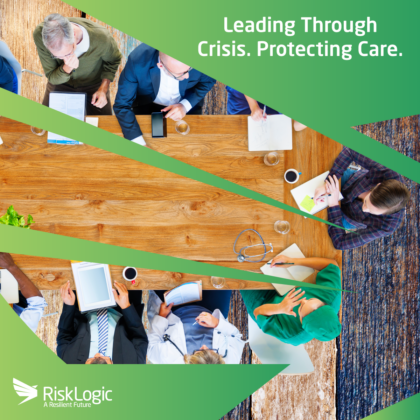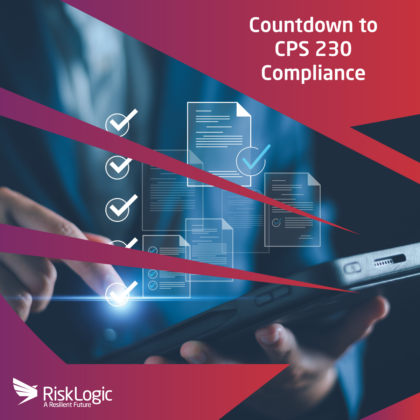-
Url copied to clipboard.
The substantial rise in cases associated with the Omicron variant combined with changes to the Australian testing and isolation requirements, created one of the largest “loss of critical staff” crises in recent history.
Australia’s COVID-19 cases had emerged and grown immensely across multiple states at what was thought to be ‘the tail end of the pandemic’. These case numbers were driven not only by the variant characteristics, but influenced by changes in public health response strategies, vaccination timelines, and the impact of human movement. As a result, the opening of the borders saw 150,000 new cases within 24 hours which was a catalyst for significant staff shortages, financial loss, and operational strain.
Major supermarkets saw transportation and supply chain impacts over the Christmas and New Year period, resulting in lack of stock as well as lack of staff; Woolworths reported at the time, one in three staff were in isolation.
Hospitals and aged care providers were impacted to critical levels, seeing the implementation of a risk-based assessment of isolation timelines, and definitions of close contacts amended to allow critical health care workers to return to the workplace in a shorter time frame.
Similarly in the hospitality industry, patrons were finding more restaurants and venues closed due to lack of available staff. Falling on the back of long periods of lock down for some states, adding to the operational and financial stress for businesses.
Controlling outbreaks of the Omicron variant no longer rely on tight physical and geographic restrictions, but rather a focus on vaccination and booster rollouts (with national and international advice demonstrating its importance as a mitigation tool).
The message, reiterated by both Australian and New Zealand governments, is that you need to get your staff vaccinated, boosted, and refresh your business continuity plans.
With the loss of critical staff, essential roles, and in-person processes, our clients were focused heavily on reviewing contingencies including cross training, use of external agencies and cross industry networking, to obtain the critical response they need.
However, many industries and organisations were caught off-guard, with outdated or ineffective business continuity strategies in place.
RiskLogic and our consulting team predicted there will be further staffing challenges well into the winter months, as everyone continued to manage the pandemic as well as other infectious disease threats such as Influenza. Therefore, it was important to manage current and emerging risks, review options and contingencies, and establish a clear framework for response.
The timeline for total pandemic recovery is unknown
In early 2022, the World Health Organisation (WHO) Secretary General, Dr Tedros, issued a warning to world leaders that the coronavirus pandemic “is nowhere near over”.
His statement comes as European countries experience a surge in COVID-19 cases, even post vaccination roll out. He warned leaders that “with the incredible growth of Omicron globally, new variants are likely to emerge”.
Our advice to clients, and with the knowledge that we will be facing not only the impacts of the pandemic but the potential impacts of parallel crises (such as cyber incidents, extreme weather and geopolitical change), is to focus on developing and updating their COVID-19 management (prevention and response) and business continuity plans.
These two plans will enable organisations to maintain and strengthen organisational resilience in an ever changing risk environment.
Employees seek more hybrid arrangements
In addition to the impacts of illness and isolation, many organisations are moved into the year with the knowledge that several front-line professionals are seeking new career paths – as they respond to the stress and fatigue of the pandemic.
In addition, and as an outcome of the pandemic, many organisations have adapted well to working remotely, according to a report by the Government’s Think Tank, The Productivity Commission, 35% of jobs have aspects and responsibilities that can be continued from a remote working arrangement.
Many workplaces have adapted to provide what they imagined to be a temporary flexible workplace. However, two years on, many professionals are seeking a more flexible and adoptable work-life balance, favouring a more hybrid workplace and actively seeking out organisations that provide that option.
Leadership must consider the potential impacts on critical roles, critical processes and identify potential policy changes to reflect new social expectations.
Critical next steps
As we continue to manage the evolution of the COVID-19 pandemic and attempt to identify and prepare for other risks and threats, valuable next steps for all leadership needs to include an immediate revision of critical process, the minimum level of human resources and skills associated, so that contingencies, both short and long term can be developed.
In addition, now is the time to review organisation-wide business continuity and strengthen response strategies focusing on four areas:
- Loss of critical staff
- Denial of access (temporary or permanent)
- Loss of IT and communications, and,
- Loss of critical third-party provider or supply chain.
Our experience at RiskLogic allows us to streamline this process and assist clients to strengthen resilience maturity as we head into another year.
Article references:
- https://www.abc.net.au/news/2022-01-12/omicron-delta-covid-strains-in-australia/100747762
- https://www.voanews.com/a/omicron-wave-surges-in-australia/6397051.html
- https://www.reuters.com/business/healthcare-pharmaceuticals/australia-covid-19-infections-hit-1-million-omicron-drives-record-surge-2022-01-09/
- https://www.abc.net.au/news/2022-01-05/force-the-workforce-back-to-office-or-wfh-forever/100718234
- https://www.news.com.au/world/coronavirus/australia/why-2022-and-omicron-variant-will-mark-the-end-of-the-covid19-pandemic/news-story/f4529253f1c5bc9b84d487fadfa518da
- https://thediplomat.com/2022/01/omicron-overshadows-australias-opening-up/
- https://www.theguardian.com/australia-news/2022/jan/13/pms-response-to-omicron-staffing-crisis-falls-short-australian-businesses-and-unions-say




